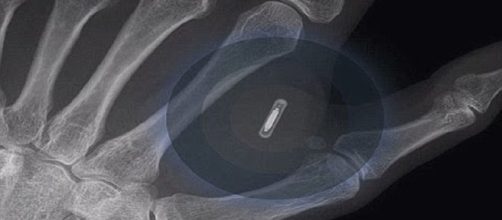Over 50 workers of three square market in River Falls, Wisconsin, volunteered to be implanted with a microchip. By having a tiny chip with radio-frequency identification, the employees could perform several tasks simultaneously.
Among the tasks they can perform at the same time because of the chip implant is making purchases in the company’s break room market, using the copy machines, logging into the office computers, opening doors, unlocking phones, storing medical and health information, sharing business cards, and paying at other RFID terminals.
Standardized technology
Three Square Market CEO Todd Westby said the technology would eventually become standardized that authorities would allow it to be used as a passport, to ride public transit, and for various purchases. The New York Post reported that chip is implanted between the thumb and the forefinger within seconds.
An inaugural chip party will be held on Aug. 1 at the headquarters of Three Square Market on Aug. 1. The microchip, which is as small as a grain of rice, will be used similarly to how people use their mobile phone to purchase goods. Wesby explained how the chip would work at the self-service kiosk of the company’s office break room.
He said the “pay with a credit card” on a menu is selected, and then the system will ask the person to swipe the proximity payment which is done by holding up the hand with a microchip similar to a mobile phone to pay for a product.
Functions as a credit card
The $300 chip, which Three Square Market will supply, will function as the credit card of the person with the implant. Westby assured the data stored on the chip is secure and encrypted. He assured privacy concerns will not be an issue and there will be no GPS tracking.
The company will shoulder the cost of the procedure to implant the chip, Gizmodo reported. It takes a few seconds to implant the chip, and the procedure is usually painless, Jowan Osterland, CEO of BioHax International, said. Three Square Market had partnered with BioHax which will perform the procedure.
Before Three Square Market, BioHax had done implants on employees of Epicenter, a Swedish company that offers co-working space for start-ups.
At that time, BioHax charged $120 to implant the chip on staff and guests of Epicenter. Included those who had the procedure was Hannes Sjoblad, the chief disruption officer of Epicenter whom Osterland met at biohacking circles.


